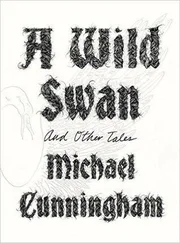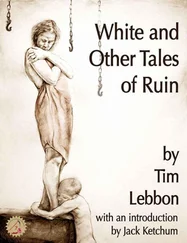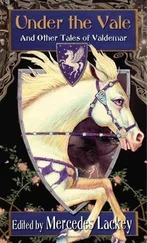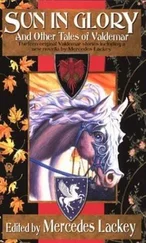William Kingston - Foxholme Hall, and Other Tales
Здесь есть возможность читать онлайн «William Kingston - Foxholme Hall, and Other Tales» — ознакомительный отрывок электронной книги совершенно бесплатно, а после прочтения отрывка купить полную версию. В некоторых случаях можно слушать аудио, скачать через торрент в формате fb2 и присутствует краткое содержание. Жанр: foreign_prose, foreign_children, на английском языке. Описание произведения, (предисловие) а так же отзывы посетителей доступны на портале библиотеки ЛибКат.
- Название:Foxholme Hall, and Other Tales
- Автор:
- Жанр:
- Год:неизвестен
- ISBN:нет данных
- Рейтинг книги:3 / 5. Голосов: 1
-
Избранное:Добавить в избранное
- Отзывы:
-
Ваша оценка:
- 60
- 1
- 2
- 3
- 4
- 5
Foxholme Hall, and Other Tales: краткое содержание, описание и аннотация
Предлагаем к чтению аннотацию, описание, краткое содержание или предисловие (зависит от того, что написал сам автор книги «Foxholme Hall, and Other Tales»). Если вы не нашли необходимую информацию о книге — напишите в комментариях, мы постараемся отыскать её.
Foxholme Hall, and Other Tales — читать онлайн ознакомительный отрывок
Ниже представлен текст книги, разбитый по страницам. Система сохранения места последней прочитанной страницы, позволяет с удобством читать онлайн бесплатно книгу «Foxholme Hall, and Other Tales», без необходимости каждый раз заново искать на чём Вы остановились. Поставьте закладку, и сможете в любой момент перейти на страницу, на которой закончили чтение.
Интервал:
Закладка:
After the gay assemblage had got somewhat weary of the ordinary sports, a number of persons repaired to the rocking-stone, where they amused themselves by daring each other to give evidence of their virtuous lives by setting the stone rocking. Several had gone forward, when the stone was clearly seen to vibrate. At length the names of several damsels were called out, and, among others, Mistress Gertrude Alwyn was summoned to go forward and move the stone. There might have been a slight blush on her cheek at appearing before so many people on such an undertaking; but yet, with a slight laugh and a smile on her lips, she advanced towards the stone. There was a perfect silence among the crowd of spectators as she touched the stone. It did not move. Again and again she touched it, with all the force she could exert. The stone remained as immovable as if part of the mass on which it rested. There was a general groan uttered by the crowd, an evidence of their full belief in the truth of the legend, while, at the same moment, a piercing cry was heard, and the unhappy damsel was seen to fall fainting to the ground. Dame Alwyn ran forward to raise her daughter, followed by young Herbert de Beauville, who declared aloud that, for his part, he believed the stone might sometimes rock and sometimes cease to rock, but that this had nothing to do with the virtue or want of that quality in those who touched it. There was a cry of “Heretic Lollard” from among the crowd, but Herbert silenced it by declaring that he would slit the tongue and break the head of any one who uttered it, or a word against the fair fame of Mistress Gertrude Alwyn. The poor girl was mounted on a pillion behind her father and conveyed back to Donington, weeping bitterly. A number of persons collected round the stone, and soon afterwards, on being touched by chance, it was seen to rock as before.
Herbert remained some time behind the Alwyn family, stalking about with his hand on the hilt of his sword, evidently longing for an encounter with some one; but as no person present seemed disposed just then to beard him, he at length mounted his horse and rode after his friends. Again and again he assured Master Alwyn, and his dame, and sweet Mistress Gertrude of his disbelief in the knowledge of the stone of the character of those who touched it, and that he would not credit a word against her fair fame should the cardinal, or bishop, or the Pope himself utter it. Gertrude thanked him with tears in her eyes, but begged him to return home and talk the matter over with Master Roger before he took any steps to vindicate her character, which he told her that he was resolved to do. His worthy guardian did not look on the matter in the light he did. He confessed that he did not believe that Mistress Gertrude was of light character, but that if the world did so, it was nearly as bad, and that she was not a fit bride for him. Herbert did not see the matter in this light, and argued the point with great vehemence, and declared that nothing should prevent him from vindicating her character by marrying her forthwith.
In this same year a claimant to the throne of England appeared in the person of a handsome youth, who pretended to be Richard Duke of York, second son of Edward the Fourth. He had married the Lady Catherine Gordon, a cousin of the King of Scotland, who espoused his cause. No sooner did he appear in arms than Herbert, faithful to the traditions of his family, prepared to join him. He had no retainers, no money, only his own good sword and ardent young heart. Roger was now too old to bear him company, much as he wished it. He would, indeed, have dissuaded his young master from the enterprise, on the ground that the Houses of York and Lancaster were already united, and that, after all, the new claimant to the crown might be only a pretender, as was asserted, and not the true prince; but then he thought that absence might cure him of his love for Gertrude, and that mixing in courtly society might make him desirous of wedding with the fair Lady Barbara Fitz Osbert. Roger was, however, far too wise to hint anything of the sort, and with inward satisfaction he saw him go to bid farewell to pretty Mistress Gertrude, hoping that the young people might never meet again. Herbert, however, had no such thoughts in his mind. Again and again he repeated his promise to Gertrude that he would remain faithful to her, and that, come weal or come woe, he would return, if alive, and marry her. The world might say what it dared – might traduce and scorn her, but he would believe her true. He spoke with so much earnestness that she believed him, and pledged her own word to be faithful to him in return.
Not till Herbert had paid this farewell visit to Mistress Gertrude did the wily Father Mathew attempt to cast any slur on her character, or to dissuade his pupil from his intended marriage. He left nothing unsaid which he thought could produce that result. Every insinuation he dared make he whispered into Herbert’s ear. Roger also was not slow to support the curate’s remarks, while at the same time he warmly praised the charms of the Lady Barbara Fitz Osbert, the heiress of the castle of Hardingham and its broad domains. Herbert listened, pained in mind, and moved, but not convinced. “Should she be fake, there is no virtue or faith in womankind, and I would as lief throw away my life in the first battle in which I am engaged as live.” Many young men have thought the same thing, and changed their mind.
No sooner had Herbert taken his departure than Father Mathew, who had got into the confidence of Master Thomas Fisher, urged him to press his suit. Old Master Fisher had become very much averse to it, on account of the reports which were current; but Thomas asserted that he disbelieved them, and that, in spite of all that might be said against Mistress Gertrude, he was resolved to marry her.
Years rolled on; news came of the expedition of the Scotch king and the supposed prince into England, and of its failure. After that nothing more was heard of the unfortunate husband of the Lady Catherine Gordon or of young Sir Herbert de Beauville, who had been knighted by the King of Scotland.
Meantime a visitor had come to Donington. He was evidently a man of superior birth. He was frequently seen in the company of Mistress Gertrude, and various were the surmises about him. Both Master Alwyn and his dame paid him the greatest respect. He was somewhat advanced in life, though still strong and active. His bronzed complexion, and more than one scar visible on his cheek, showed that he had been engaged in war in southern climes. He did not appear to seek concealment, but at the same time not a word did he let drop which could allow people to guess who he was. At length one day a dozen men-at-arms and several knights, with two led horses, appeared at Donington, and the stranger and Mistress Gertrude were seen to mount and ride away after an affectionate farewell of Master Alwyn and his dame. No people were more puzzled than Roger Bertram and Father Mathew. They remained at Beauville, holding the castle for Sir Herbert, though it seemed very doubtful whether he would ever return. One day a wandering minstrel came to the neighbouring hamlet. He approached a house, the bush hung over the door of which showed that entertainment for man and beast was to be obtained in the establishment. The minstrel took his seat in the public room, and quickly entered into conversation with those around him. His object seemed to be to obtain information about the persons in the neighbourhood. Among others he asked after Master Alwyn and his dame. They were living as before in the old house, and enjoying good health and strength.
“They had a daughter,” observed the minstrel, in a calm voice.
“Oh, the hussy! – she long since went away with a gay knight, who came with a band to carry her off, and no one knows what has become of her,” answered his loquacious informant.
Читать дальшеИнтервал:
Закладка:
Похожие книги на «Foxholme Hall, and Other Tales»
Представляем Вашему вниманию похожие книги на «Foxholme Hall, and Other Tales» списком для выбора. Мы отобрали схожую по названию и смыслу литературу в надежде предоставить читателям больше вариантов отыскать новые, интересные, ещё непрочитанные произведения.
Обсуждение, отзывы о книге «Foxholme Hall, and Other Tales» и просто собственные мнения читателей. Оставьте ваши комментарии, напишите, что Вы думаете о произведении, его смысле или главных героях. Укажите что конкретно понравилось, а что нет, и почему Вы так считаете.












